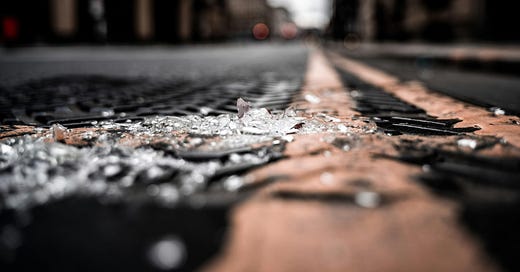MADMEN AND MUTES
Never has the map looked less like sense.
Not a cartographer’s lie, but a gash across
our shared delusion of order.
We have walked into the future backwards,
mouthing prayers to progress while our hands
build monuments to ruin.
The institutions creak like broken scaffolds,
parliaments filled with jester-tyrants,
grinning through blood-slicked mandates.
What century is this, truly?
Where greed wears a diplomat’s pin
and deceits are told with an elegant accent,
smelling faintly of sandalwood and slaughter.
They said democracy was a conversation.
It now resembles a brawl in an abandoned church—
one side shouting of freedom,
the other licking boots in exchange for
certainty, or scraps of identity.
Both blind to the ash collecting on their shoulders.
Do they not see it?
The char of centuries past returning
in the mouth of every populist preacher?
Never has the future felt more like a bluff.
A poker table ringed with lunatics,
nuclear codes in one pocket,
self-interest in the other—
yet not the old self-interest, that 18th-century
polished selfishness gilded with prudence—
but the new kind,
mad-eyed, mouth-foaming,
sabotaging the very ark it boards.
We are governed by those
who would rather set fire to the ship
than let another man steer it.
They speak of The People
as if it were one face—
not a shattered mirror
reflecting grief, rage, hunger,
dispossession stitched into flags
and waved like talismans against reality.
Some believe in omnipotence,
in the power of the algorithm,
in movements choreographed
to hashtags and dopamine.
That with enough bodies,
enough retweets,
you can reverse entropy,
bend time,
cancel consequence.
Others—
too many—
have made peace with impotence.
Their lips tight around a cold cup of tea,
their gaze dulled by a thousand betrayals,
watching the news
like spectators at their own funeral.
Theirs is not apathy—
it is bruised wisdom,
a silence learned through
a thousand unheard cries.
Is this civilisation?
When lands lay in ruins,
and children bleed beneath
the euphemism of “strategic interests”?
When oceans rise but truth drowns faster?
When famine is no longer news,
just a line in the budget?
Where does one stand
when the centre is not holding,
but winking,
collapsing into farce?
Where are the elders?
The philosopher-kings,
the sceptred minds who once weighed
history like gold?
Replaced by pundits,
gamblers with microphones,
men who read Machiavelli
and took it as scripture.
And still—
we light candles,
sign petitions,
cling to shreds of meaning
like beggars gripping bread in a storm.
But I ask you—
What happens when the madmen
don’t wear crowns,
but suits tailored in Geneva?
When reason itself
is labelled extremist,
and neutrality is the last coward’s refuge?
Are we not all complicit?
Every swipe, every scroll,
every dinner party
where injustice was laughed into anecdote?
What shall we tell the unborn?
That we stood at the cliff
and argued about who pushed who,
while the earth burned beneath our feet?
Perhaps the only sanity now
is grief—
grief not as surrender,
but as rebellion,
a refusal to forget
that humanity is capable
of more than this grotesque pantomime.
The question is not:
Can we be saved?
But:
Do we still remember how to weep
for something beyond our own reflection?
Let the future be not a gamble
but a reckoning.
Let it arrive like a stern-eyed ancestor,
asking:
Did you speak truth when it mattered?
Did you see what was coming and still go blind?
Did you stand, or did you scroll?
And may our answer,
if not heroic,
at least not be a lie
.



